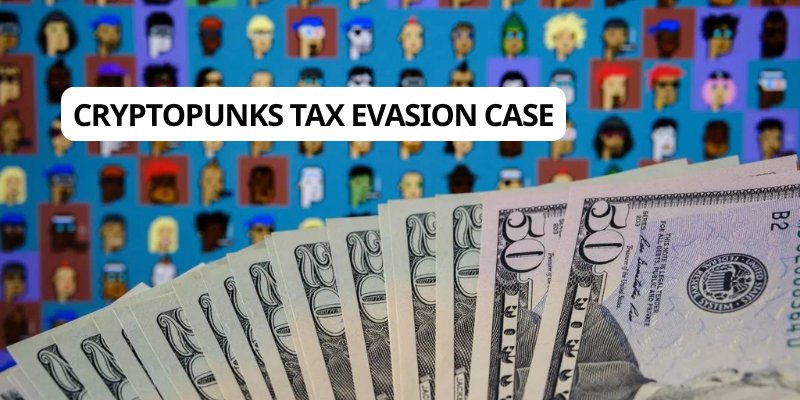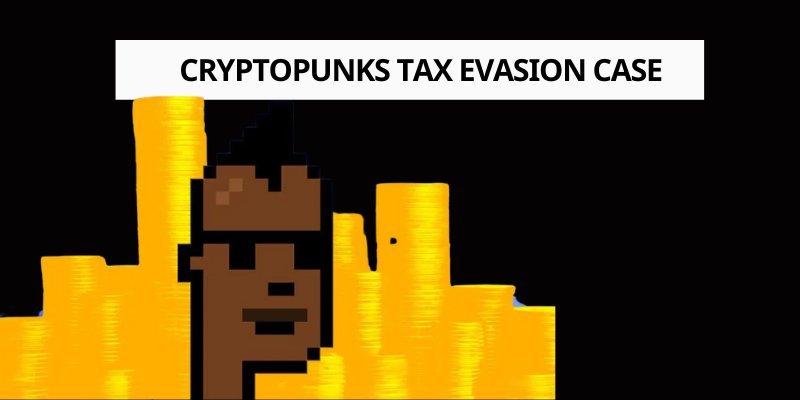The Wilcox Case: Tax Evasion and the Future of NFTs
The non-fungible token (NFT) market has been a crucible of innovation and wealth creation, with collections like CryptoPunks leading the charge. These pixelated avatars, once obscure, have become synonymous with the digital art revolution, fetching millions in auctions and capturing the imagination of investors worldwide.
However, the meteoric rise of NFTs has not gone unnoticed by regulatory bodies, and a recent case involving a U.S. investor, Waylon Wilcox, has thrust the industry into uncharted territory. Accused of evading $3.3 million in taxes on $13 million in CryptoPunks profits, Wilcox now faces up to six years in prison.
This landmark case, the first criminal prosecution of its kind in the U.S., signals a seismic shift in how NFT transactions are monitored and taxed, with far-reaching implications for investors and blockchain platforms like TRON.
Contents
A Cautionary Tale of Greed and Oversight
Waylon Wilcox’s journey mirrors the euphoria of the 2021 NFT boom. Between 2021 and 2022, he traded 97 CryptoPunks, amassing over $13 million in profits. CryptoPunks, created by Larva Labs, were among the earliest and most coveted NFTs, their value driven by scarcity and cultural cachet. Wilcox’s success placed him at the forefront of the NFT elite, but his decision to conceal these earnings from the Internal Revenue Service (IRS) would unravel his achievements.

Court records reveal that Wilcox employed deliberate strategies to hide his income, underreporting or omitting his CryptoPunks sales. The IRS, armed with increasingly sophisticated blockchain analytics, uncovered the discrepancy, estimating a tax liability of $3.3 million. In a plea agreement, Wilcox admitted his guilt, accepting responsibility for his actions.
The consequences are severe: a potential six-year prison sentence looms, alongside substantial financial penalties. This case serves as a stark reminder that the anonymity once associated with crypto transactions is eroding, replaced by a landscape of accountability.
The First Domino: NFT Tax Enforcement
The Wilcox case is a historic milestone, marking the first time a U.S. investor has faced criminal charges for tax evasion tied to NFT transactions. While cryptocurrency taxation has long been a focal point for regulators, NFTs present unique challenges. Their non-fungible nature—each token representing a distinct asset—complicates valuation and reporting, leading some investors to assume they operate outside traditional tax frameworks. The IRS has dispelled this notion, asserting that NFT profits are subject to capital gains tax, just like stocks or real estate.
This prosecution reflects a broader escalation in regulatory oversight. The U.S. Department of Justice (DOJ) and IRS have bolstered their capabilities to track blockchain transactions, targeting high-profile cases to set precedents. The Wilcox case is a clear message to the NFT community: compliance is non-negotiable. As regulators refine their approach, investors must anticipate increased scrutiny, particularly for high-value transactions involving blue-chip collections like CryptoPunks.
TRON’s Role in the NFT Ecosystem
The Coin68 article references TRON, a blockchain platform founded by Justin Sun, in connection with the NFT market. While the specifics of TRON’s involvement in the Wilcox case are unclear, its prominence in the NFT space is undeniable. TRON’s low transaction fees and high throughput have made it an attractive alternative to Ethereum, hosting a growing ecosystem of NFT marketplaces and dApps. It’s plausible that CryptoPunks or related transactions occurred on TRON-compatible platforms, highlighting the platform’s relevance.
However, with great visibility comes great responsibility. TRON and similar blockchains must navigate a tightening regulatory landscape, where failure to facilitate compliance could invite scrutiny. The Wilcox case underscores the need for platforms to integrate tax-reporting tools and educate users about their obligations. By doing so, TRON can solidify its position as a leader in the NFT space while mitigating regulatory risks.
A New Era for NFTs
The implications of the Wilcox case ripple across the NFT market. For years, the industry thrived in a regulatory vacuum, fueled by speculation and innovation. Now, as tax authorities assert their authority, investors face a reckoning. The prospect of audits and penalties could temper enthusiasm, particularly among retail traders who dominate the market. High-profile collections like CryptoPunks may remain resilient, but lesser-known projects could struggle in a compliance-driven environment.
Yet, this shift is not entirely negative. Regulatory clarity could pave the way for mainstream adoption, attracting institutional investors wary of legal ambiguities. By establishing NFTs as a legitimate asset class, regulators may inadvertently bolster their long-term viability. The challenge lies in striking a balance: fostering innovation while ensuring accountability.

For NFT investors, the Wilcox case is a clarion call to prioritize compliance. Engaging tax professionals with expertise in digital assets is critical, as is maintaining meticulous records of transactions. Blockchain analytics tools can aid in tracking profits and losses, ensuring alignment with IRS guidelines. Meanwhile, the crypto community must advocate for regulations that support growth without stifling creativity.
Platforms like TRON have a pivotal role to play. By offering compliance-focused features—such as automated tax reporting or educational resources—they can empower users to navigate this new reality. The Wilcox case is a reminder that the NFT market is maturing, and those who adapt will thrive.
The prosecution of Waylon Wilcox for tax evasion in CryptoPunks transactions is a defining moment for the NFT industry. It signals the end of an era of unchecked profits and the dawn of a regulated future. As the IRS and DOJ intensify their oversight, investors and platforms like TRON must embrace transparency to survive.
For CryptoPunks, this case reinforces their status as a cultural and financial powerhouse, but it also highlights the risks of non-compliance. The road ahead is fraught with challenges, but it also offers an opportunity to build a more sustainable and inclusive NFT ecosystem.